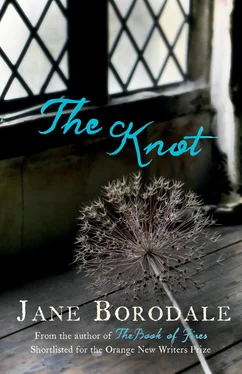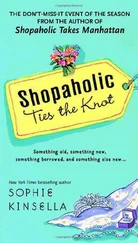‘London?’ Henry looks up from the book in which he jots down market matters. He thinks of the annual tasks for the land and almost laughs.
‘Impossible.’
He makes a note about the price of raw wool in his meticulous hand, and flips the pages to examine the same for the previous year. He calculates what kind of profit might be expected from his flock, how many hoggets should be sold off, how many kept. His shepherd William Warfyld has a plan to use the unclaimed field known as No Man’s Plot, which means he could afford to raise the numbers unless someone places an objection. He wonders though whether that field is just too wet. When he looks up, she is still in front of him, waiting for an answer.
‘Besides, what would you do there?’
Now it is Frances’s turn to be amused. ‘Do? Master Lyte, what do you suppose I spend my time at here that I should miss? I must run the household but it can manage without me if we are not here. After all – if we are not here, there is much less to do. We can stay with my cousin, now that mother has remarried and gone to Devon.’
‘Surely there is plenty to do wherever we are; it should make no difference?’
‘I do not mind hard work, but in London there would be less weather and more people,’ she replies. ‘And we can bring Lisbet.’ Frances, when she chooses, can set quite a stubborn line to her jaw. ‘I lack for just one thing, Henry. Fun.’
‘You’ll have plenty on your hands soon enough,’ he says, indicating her belly.
‘There are months left to go,’ she protests.
This really is very tiresome. He has several sorts of account to pay today; tailors’, mercers’, smiths’ and chopmen’s bills. He waves his hand vaguely at the door. ‘Go for a walk. Learn an instrument.’
‘An instrument?’
‘Yes, a lute. No! Perhaps the virginals.’ Reverend Tope says that a lady should only ever learn an instrument that does not cause her to spread her legs. He agrees with very little that Reverend Tope opines on, but today he is in a hurry, and other people’s thoughts can provide an occasional shortcut to thinking for oneself, can’t they? And in her condition … He is sure that one could sit at the virginals with one’s anklebones neatly together, though at this very moment he does not much care.
‘I don’t know, Frances, you are a grown woman with an entire household to run, and in the unlikely event that you have an ounce of spare time you can occupy it for yourself. Learn ballads. Anything! But London this month is out of the question.’
This afternoon Henry receives another letter from his father. There have been many sent between them now, their dealings with each other becoming at best unkind, at worst hostile, a volley of fire. But this letter, it becomes clear as he breaks the seal, is the most poisonous of them all, one that at all costs Frances must never see. This letter summons every evil that his father has been alluding to over this horrible month, but never yet dared to mention outrightly. And here it is, set down as if it were a truth, a twisted fact. If it were so, why does he not make his accusations in public? Why does he hide his venom in a letter, yet leaking breath and whispers of his intent all through the borough so that it comes to his ears slowly from all directions. His claim is that Henry himself was to blame for the sickness and death of his first wife Anys. Death. The man claims he is a murderer. Murderer. Odious, odious lies.
‘I am a good man, am I not?’ he says to himself, his carefully nurtured world falling apart inside him. ‘How can I clear my name, when there has been no fair trial?’
Chapter XIII.
Of MULLEYN. It hath great, broad soft and woolly leaves. It sheweth like to a Waxe-candle, or Taper, cunningly wrought.
WHAT THE HELL IS THIS satyrion, a kind of orchis? He has never seen one for himself, nor even had it verified, and he will not write about a kind he does not understand. He puts that section of the translation aside and waits until the simpler calls by again. In the meantime he finds he cannot respond to his father’s letter. He will. He will write soon, but not until his head has cleared. It is like a fog in there; remembering anything is more like groping about and stumbling by chance upon fragments.
When the simpler comes, he calls her in.
‘Does my lady yet need hart’s tongue or camomile for her limbick as she used to before?’ she bleats. ‘She were always such good custom off me. She’ll want a good few handful.’ She starts pulling bundles out of her pack and spreading them across the table. ‘I have a quantity and can get more. Plantain, as you call it here? Sorrel? Betony?’ The simpler is a thickset, wall-eyed woman with black fingernails. Her one good eye roves the carpet as if looking for herbs.
Henry Lyte clears his throat. ‘What do you know of standegrasses, orchis?’ he asks her.
The woman looks blank.
‘I’ll know the plants I know of, and that’s flat.’ She is not inclined to be helpful, in fact she is distinctly disgruntled. Since the death of Anys, her sales of flowers and other necessaries up at Lytes Cary have been minimal. Anys used to order roseheads by the bushel to supplement those grown at the edge of her little plot, which was eightpence a time.
‘They have two roots in the soil like a man’s cods,’ he explains. ‘One fat, one shrivelled. Spotted, fleshy leaves, thick upright stems with—’
The woman’s face clears. ‘You means butcher flowers, long purples. Too late for them now.’
‘But there are others like them—’
‘Ah! Like maybe fools ballocks, or sweetheart’s, you mean?’
‘Possibly, it’s just that—’
She looks sly. ‘I may have been approached by several gentlemen in London and once a lady for the same before. I may know of a place where they grow. In confidence, you’ll want them, like they did.’
‘In confidence? Why?’
Her eye fixes abruptly on a spot upon the floor and does not waver.
‘It’ll cost.’
Henry sighs. ‘How much?’
The woman’s good eye briefly meets his own then slides away. She shrugs. ‘If you want ’em I can get but it’ll be sixpence. Each,’ she says flatly. ‘There’s not so many of them and with my sight I’ll be scrabbling all over the hillside up off for too long before I’m spotting any. Got to make it worth my while.’
‘I shall need a variety of specimens. Whatever you can find.’
‘What did you call it? Stander grass? Never heard that. Don’t know that I call it anything much, any old name’ll do half the time, and the other half I calls ’em nothing.’ She perks up suddenly, having got her price.
‘And just the fat cod out of the two roots it has, Master? You’ll not want the slack one with nothing in it? That’s no good to Venus, Master, is it.’ Her lopsided wink is a peculiar sight and Henry Lyte looks at her uncomprehending. Surely the wretched woman doesn’t think he wants them for a provocative to venery. He has seen a recipe called a diasatyrion that mixes orchis cods with grains of Paradise and nuts and Malaga wine and candied eryngo root among other things, a sweet electuary. But he needs to observe them, and then if still fresh enough he may set them in the garden when he is done with that. He is irritated to find that his face is flushing.
‘No, no, I’ll need the whole plant, my good woman. Bring me the various sorts you can find. And try to remember where each specimen comes from. It is for my research. They have … they have no practical application whatsoever.’
The woman smirks. ‘Whatever you say. No doubt there are no other uses a man could find for them.’
She goes off into the corridor just as Lisbet passes by with a besom.
‘Several sorts of dog’s testicles for you then, Master,’ the simpler hisses out noisily, winking. ‘No bother at all.’
Читать дальше












